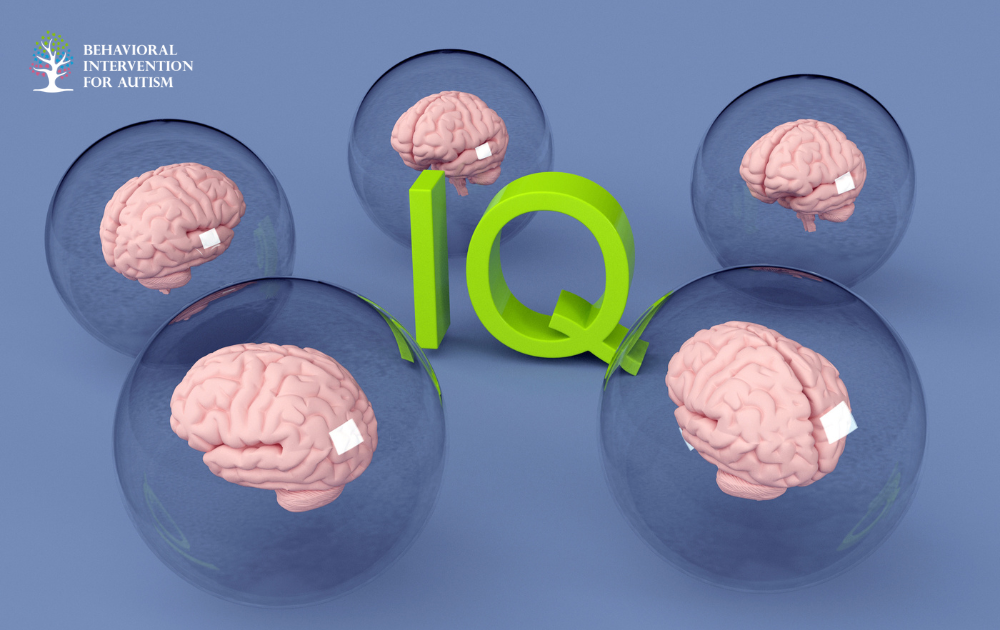
Table of Contents
Exploring autism without intellectual disability requires understanding the nuances of intelligence quotient (IQ) in autistic individuals and the challenges they may face, even with an average IQ.
Intelligence Quotient in Autistic Individuals
Recent studies have shed new light on the intelligence quotient of individuals on the autism spectrum. Almost 60 percent of autistic individuals in the United States may have an average or above-average IQ, marking a significant increase from previous estimates. In 2016, the proportion was at 42 percent, but a more recent longitudinal study suggests it could be as high as 59 percent.
This data challenges the misconception that autism is always accompanied by intellectual disabilities. Understanding the diverse range of IQ levels within the autistic community is pivotal for providing tailored support and interventions to meet their specific needs.
Challenges Faced Despite Average IQ
While autistic individuals with an average or higher IQ demonstrate cognitive abilities within the normal range, they can still face challenges in various domains. Challenges might manifest in areas such as social interactions, communication, employment opportunities, and daily living skills.
It is essential to recognize that IQ alone does not encompass the full scope of an individual’s abilities. Adaptive skills, which refer to practical day-to-day skills necessary for functioning within a community, play a significant role in the lives of autistic individuals. These skills can include self-care, communication, social interactions, and problem-solving abilities.
The ability to navigate these challenges effectively often requires a holistic approach that considers both cognitive capabilities and adaptive skills. By recognizing and supporting the diverse strengths and needs of autistic individuals without intellectual disability, caregivers and professionals can create an inclusive environment that fosters growth and empowerment.

Gender Disparities in Autism Diagnosis
Diagnosing autism without intellectual disability involves significant gender disparities. Autistic girls often receive late diagnoses compared to boys, presenting unique challenges in understanding and managing their condition.
Late Diagnosis Among Autistic Girls
Autistic girls tend to receive diagnoses later in life, mainly due to the fact that they may exhibit different behavioral traits or mask their symptoms more effectively than boys. This delayed diagnosis can impact the timely intervention and support needed for girls with autism, potentially affecting their overall development and well-being.
Gender Gap in IQ Distribution
In the realm of autism without intellectual disability, there exists a noticeable gender gap in IQ distribution. Research indicates that a greater proportion of autistic boys demonstrate an average or higher IQ compared to autistic girls. This disparity sheds light on the varying cognitive profiles present within the autistic population, emphasizing the importance of tailored assessments and interventions based on individual needs.
Gender | Average or Higher IQ (%) |
Boys | 60% |
Girls | 40% |
Understanding these gender disparities in autism diagnosis is essential for parents and caregivers seeking to support their children effectively. By recognizing the unique challenges faced by autistic girls and the nuances in cognitive functioning across genders, individuals with autism can receive the personalized care and resources they need to thrive.

Impact of Diagnosis Criteria on IQ
Considering the impact of diagnostic criteria on the IQ of individuals with autism without intellectual disability is essential, particularly in exploring how narrow versus inclusive definitions affect IQ levels.
Narrow vs. Inclusive Diagnosis Definitions
The way in which autism is diagnosed can significantly influence the distribution of IQ levels among individuals. For instance, individuals diagnosed with autism based on a narrow definition, often referring to the autistic disorder only, may exhibit variations in IQ levels compared to those diagnosed based on an inclusive definition. An inclusive definition typically includes a broader spectrum of disorders such as Asperger syndrome or pervasive developmental disorder-not otherwise specified (PDD-NOS).
Relationship Between Diagnosis Criteria and IQ Levels
Research indicates that the diagnosis criteria used can impact the IQ levels observed in individuals with autism. According to recent studies, individuals diagnosed based on an inclusive definition that encompasses a broader range of autistic spectrum disorders tend to show a slightly higher percentage of average or higher IQ. Specifically, individuals diagnosed inclusively showed a 59% rate of average or higher IQ, while those diagnosed narrowly had a 51% rate.
Understanding the relationship between diagnosis criteria and IQ levels is crucial for properly assessing and supporting individuals with autism, particularly those without intellectual disability. By acknowledging the nuances in diagnosis definitions and their impact on IQ distribution, parents and caregivers can gain valuable insights into the unique needs and strengths of their loved ones.

Adaptive Skills vs. IQ
Understanding autism without intellectual disability requires considering more than just Intelligence Quotient (IQ). Adaptive skills are crucial for daily functioning, as they encompass the practical abilities needed for individuals with autism to thrive in society.
Importance of Adaptive Skills
Adaptive skills go beyond academic achievements or cognitive abilities, focusing instead on the individual’s capacity to navigate real-world environments. These skills include communication, self-care, social interactions, and other daily living tasks. For individuals with autism, proficient adaptive skills are invaluable for fostering independence and enhancing quality of life.
The development of adaptive skills can vary widely among autistic individuals, even those with average or higher IQ levels. While intelligence is significant, it does not fully capture the challenges individuals may face in areas such as relationships, employment, and day-to-day activities. Thus, nurturing adaptive skills is crucial for promoting autonomy and successful integration into various social contexts.
Practical Abilities of Autistic Individuals
Autistic individuals often demonstrate remarkable practical abilities that highlight their unique strengths and perspectives. These abilities can manifest in diverse ways, ranging from exceptional attention to detail and problem-solving skills to creative talents and specialized interests. Leveraging these practical abilities not only enhances the individual’s sense of self-worth but also opens doors to opportunities for personal growth and fulfillment.
Acknowledging and cultivating the practical abilities of autistic individuals can empower them to contribute meaningfully to society and lead fulfilling lives. By emphasizing the importance of adaptive skills alongside traditional measures of intelligence, caregivers and educators can better support the holistic development of individuals with autism, nurturing their potential and enabling them to thrive in a diverse and inclusive world.

Rising Rates of Autism without Intellectual Disabilities
As awareness and understanding of autism spectrum disorder (ASD) have increased, so too have the rates of autism diagnosis, particularly among individuals without intellectual disabilities. The trends in autism rates and the disparities related to race and socioeconomic factors are examined, specifically focusing on autism without intellectual disabilities.
Trends in Autism Rates
An alarming trend in autism rates among children without intellectual disabilities is evident, especially in the New York-New Jersey metropolitan area. Between 2000 and 2016, autism rates among children without intellectual disabilities increased significantly. In this region, the prevalence rose by five times, from 3.8 per 1,000 to 18.9 per 1,000. Conversely, rates among children with intellectual disabilities more than doubled, indicating a shifting landscape of autism diagnoses.
In a Rutgers study, it was discovered that two in three autistic children did not exhibit any intellectual disability, challenging the traditional notion that autism is invariably linked to intellectual disabilities. This shift underscores the importance of recognizing and supporting individuals with autism who may not present with intellectual challenges.
Disparities Based on Race and Socioeconomic Factors
The disparities in autism diagnosis based on race and socioeconomic status further compound the evolving landscape of autism without intellectual disabilities. Black children without intellectual disability are 30% less likely to receive an autism diagnosis compared to their white counterparts. This discrepancy highlights the need for improved access to diagnosis and services within underserved communities to ensure all individuals receive the support they require.
Moreover, socioeconomic factors play a significant role in the identification of autism without intellectual disability. In affluent regions, children are 80% more often recognized as having autism without accompanying intellectual disabilities than their counterparts in underserved communities. This disparity underscores the need for equitable access to diagnostic resources and interventions to address the diversity within the autism community and mitigate the impact of socioeconomic factors on the diagnosis process.
The rising rates of autism without intellectual disabilities emphasize the complexity of autism spectrum disorder and the importance of tailored approaches to diagnosis, support, and intervention for individuals across all backgrounds and abilities. By addressing these trends and disparities, we can work towards a more inclusive and supportive environment for individuals with autism, irrespective of their intellectual abilities.

Importance of Early Screening and Intervention
Early screening and intervention are crucial for supporting individuals with autism without intellectual disability. Dr. Shenouda, a leading expert in the field, emphasizes the significance of early detection and intervention in optimizing outcomes for those on the autism spectrum.
Dr. Shenouda's Recommendations
Dr. Shenouda emphasizes the necessity of early screening, identification, and intervention for individuals with autism. He highlights that gains in intellectual functioning are closely tied to intensive intervention at younger ages. Dr. Shenouda stresses the significance of universal screening practices, especially in underserved communities, to ensure that all children have access to the necessary support and resources from an early age.
Benefits of Early Intervention
Early intervention can yield significant benefits for individuals with autism without intellectual disability. Research indicates that timely interventions can lead to improved cognitive and social abilities, better communication skills, and enhanced adaptive behaviors. By addressing challenges early on and providing tailored interventions, individuals with autism can develop essential skills and thrive in various aspects of life.
Early intervention has also been linked to superior long-term outcomes, including greater autonomy and a better quality of life for individuals with autism. By identifying and addressing the unique needs of each individual early in their developmental journey, caregivers and professionals can create a supportive environment that fosters growth, learning, and overall well-being.
Early screening and intervention are crucial for autism without intellectual disability. By implementing Dr. Shenouda’s recommendations and emphasizing early detection, caregivers and healthcare professionals can significantly enhance the lives of individuals with autism, enabling them to reach their full potential in a supportive and inclusive environment.
At Behavioral Intervention for Autism, we understand the importance of tailored approaches to meet these needs effectively. Our ABA therapy in Florida focuses on enhancing social skills, communication, and daily living activities while fostering independence. We are dedicated to providing high-quality, evidence-based interventions that empower individuals to thrive. If you’re interested in learning more about how our services can benefit you or your loved one, feel free to contact us today!
Sources:
https://www.cambridge.org/core/journals/irish-journal-of-psychological-medicine/article/autistic-spectrum-disorder-without-intellectual-impairment-in-adult-mental-health-services-fostering-new-perspectives-and-enhancing-existing-services
https://www.thetransmitter.org/spectrum/autism-without-intellectual-impairments-more-common-than-previously-reported/
https://researchautism.org/audience/research/rate-of-autism-without-intellectual-disabilities-is-rising/
- 9 Common Obsessions of Children With Autism You Should Know - February 25, 2025
- What is Neurodiversity? A Guide to Embracing Differences - February 25, 2025
- Understanding Hyperfocus in Autism: What It Means and Why It Happens - February 25, 2025
